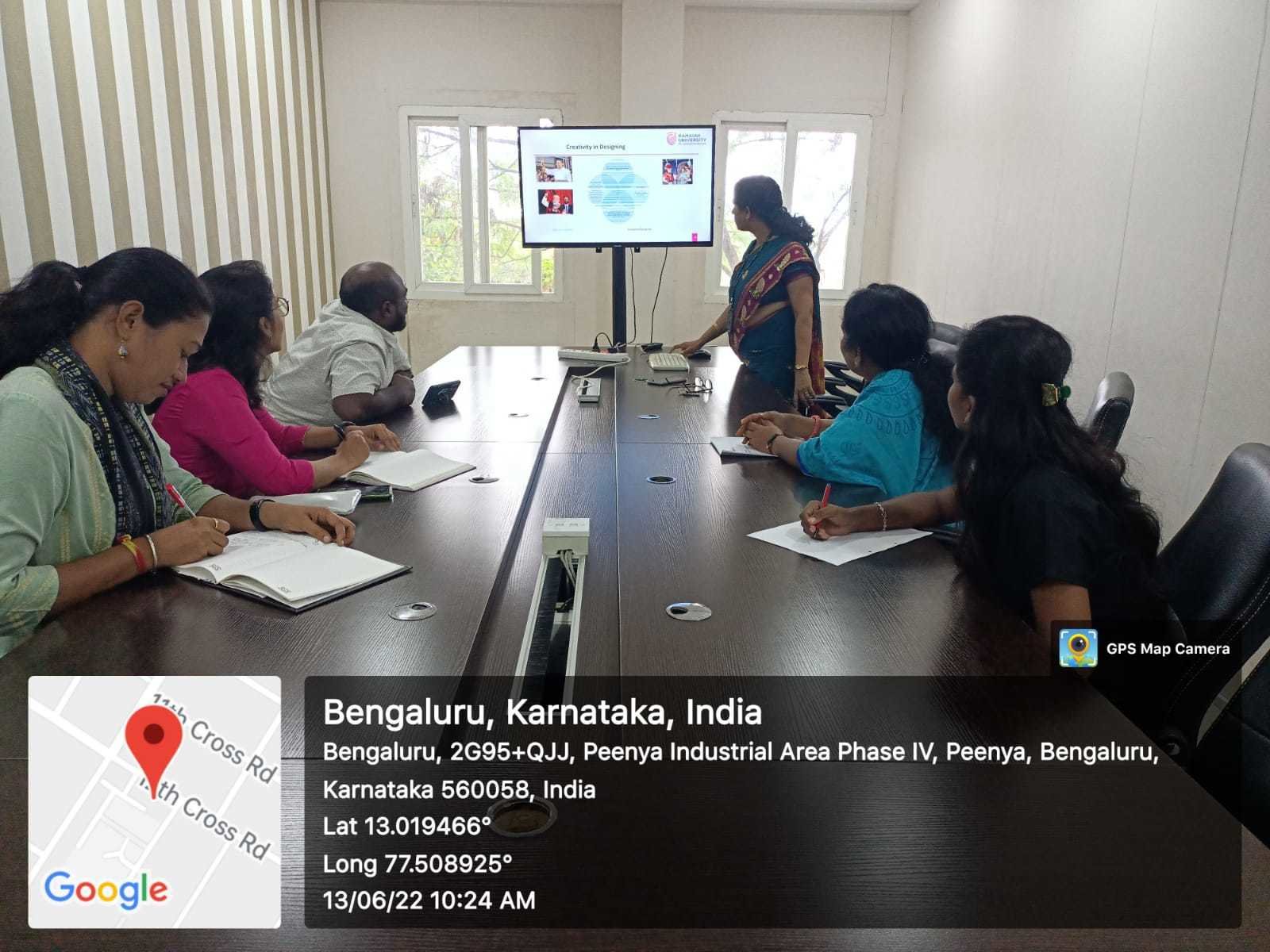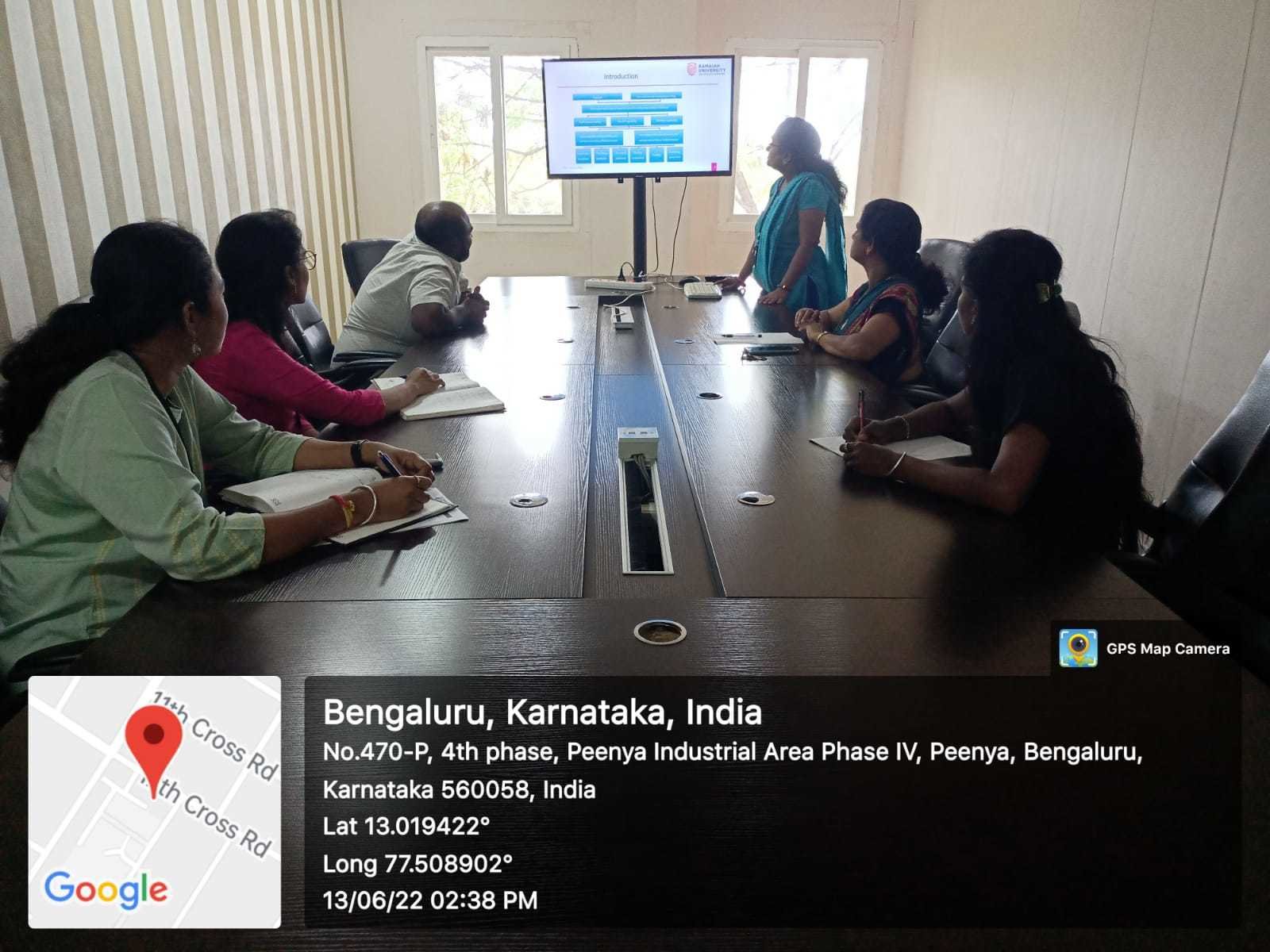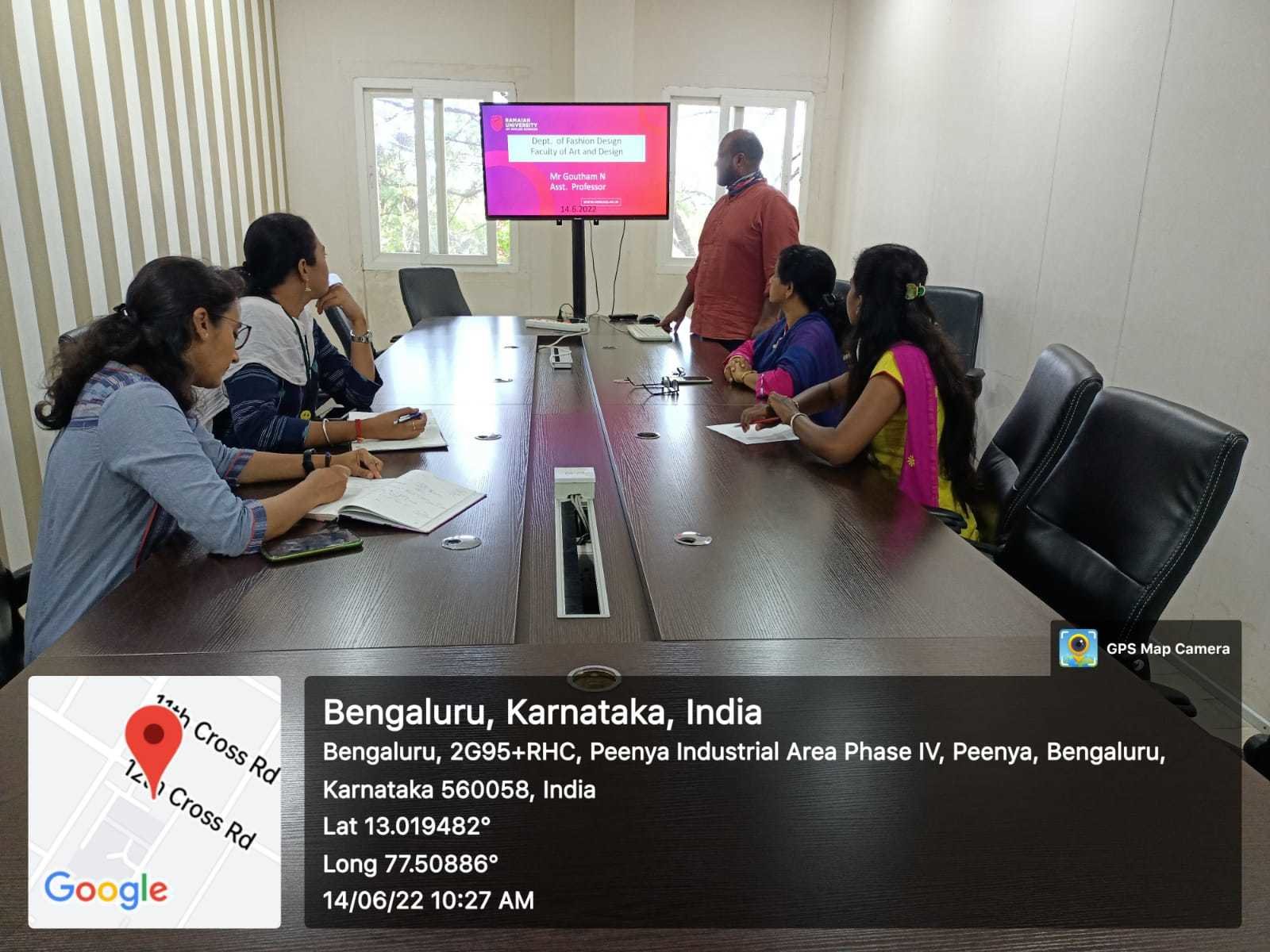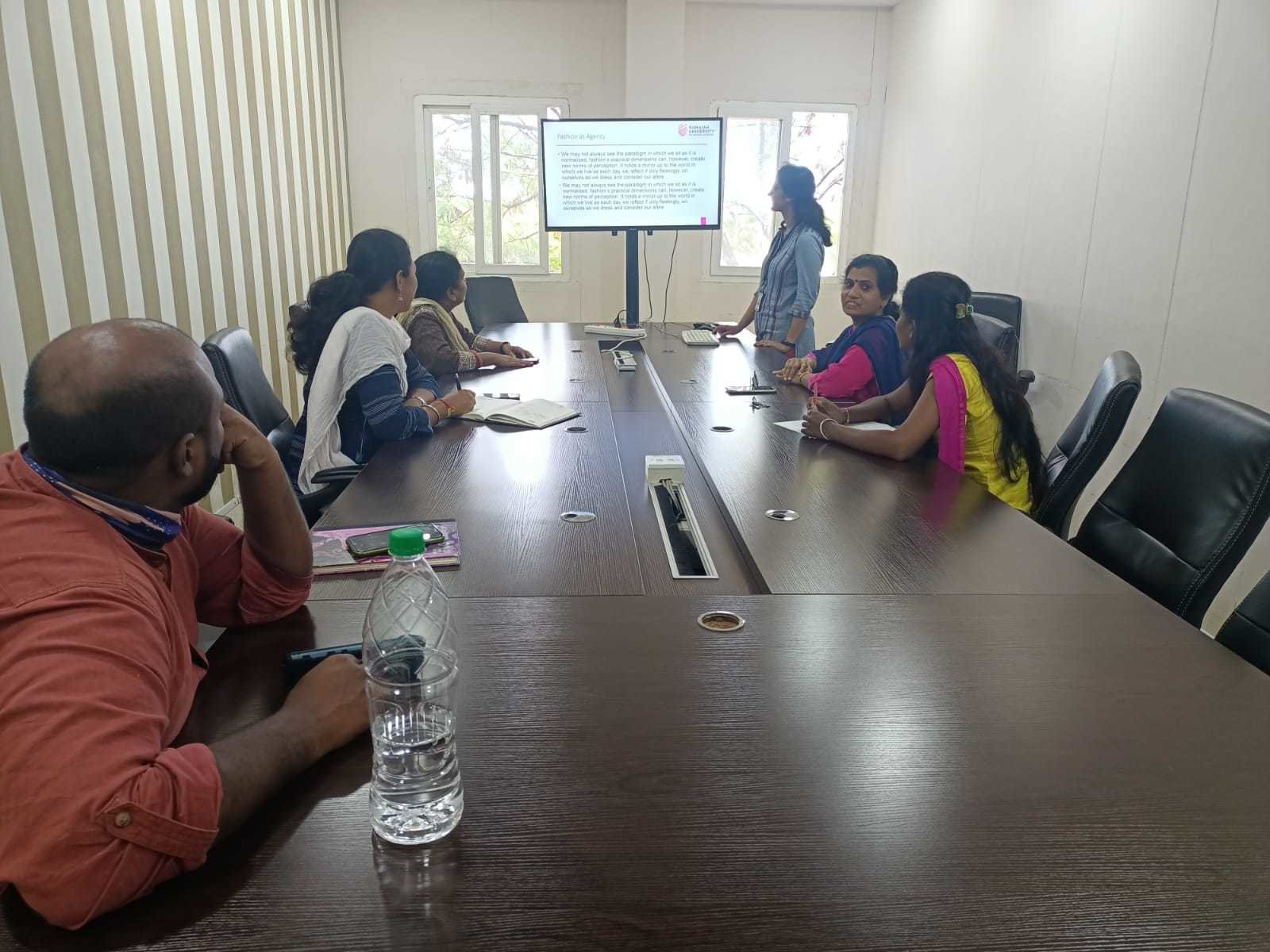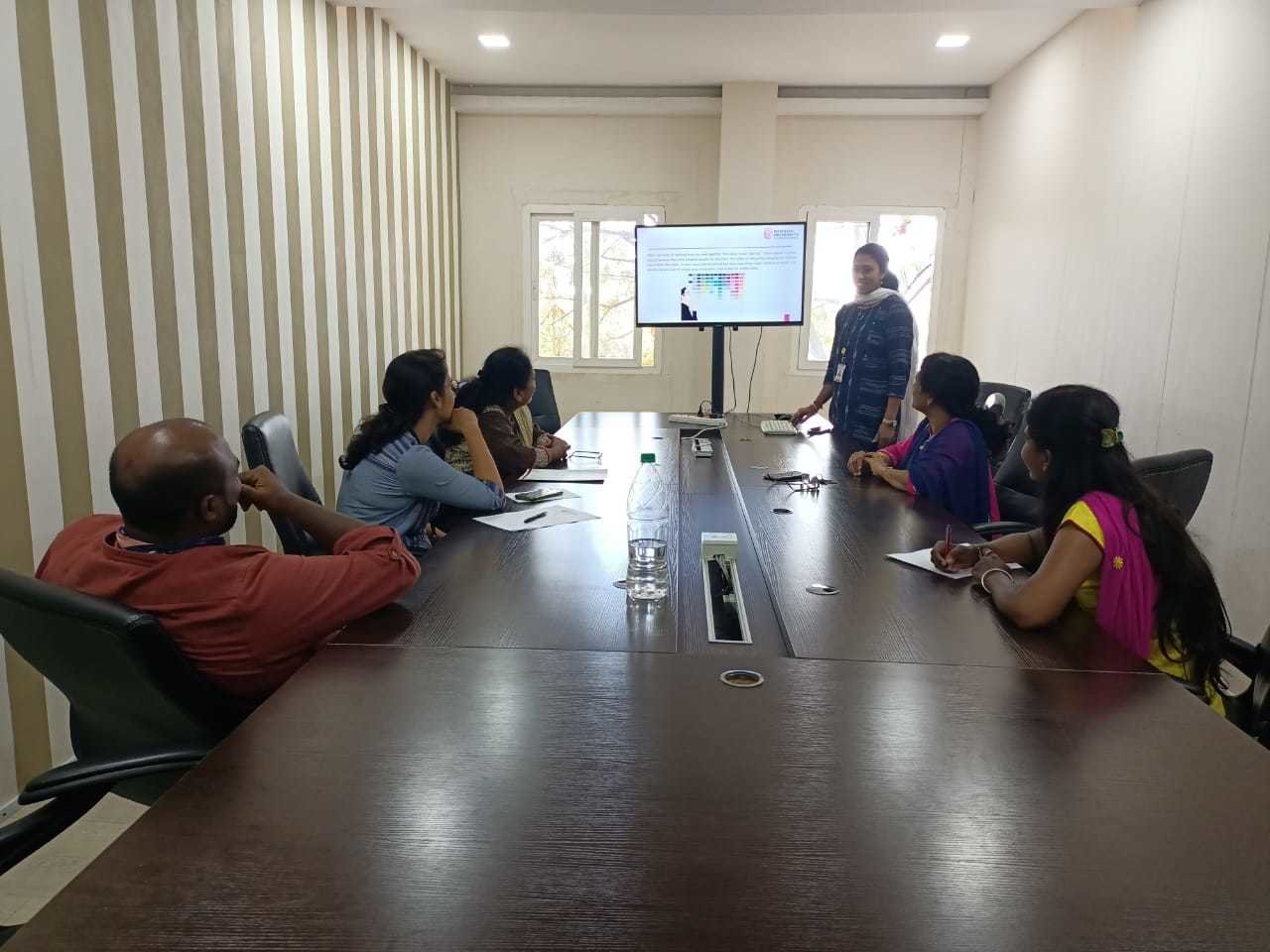Two Days Faculty Development Program
13 June 2022 (Day 1) – 10:00 AM to 1:00 PM. Dr. Mamatha G Hegde, Assoc. Prof and Head, Dept. of Fashion Design, conducted the FDP on Innovative Research in Fashion Sector. The industry is undergoing large-scale changes as a result of technological advancements. All the designers, manufacturers, and retailers, need to work together heterogeneously for the digitized development of the fashion world for the clientele and fashionistas. Fashion apparel surface designers need to digitize the style, sketch knowledge, design, and visualization of concept into a reality fashion product. Ideation, advanced skills, creativity, plasticity, ability to incorporate the latest technological developments will help the apparel surface fashion designer to lead the market and become successful. Research and innovation in the integration of essential functionalities and performance characteristics is the need of the hour. Ready to ‑Wear’ has become an important mediator between designers and consumers through web-based technologies.People involved in the E‑Commerce fashion business are now looking for newer technology and methods to meet the demands of the market and the consumers
13 June 2022 (Day 1) – 2:00 PM to 4:30 PM Mrs. Nagaveni K conducted FDP on Innovative Teaching Methods for Fashion Design Students. Explanation of professional ability, social capability & method capability. The session focused on curriculum system, teaching methods, practical platform, quality evaluation & faculty teaching materials. The course objective starts with the professional characteristics of garment design, then changes the teaching mode of traditional costume teaching content guided by real market and regards the development of future clothing fashion trends as the research object and transforms the students’ learning goals and improves teaching results. From the perspective of system thinking, trend-forecast-oriented garment design courses make students have the ability of accurate awareness, overall thinking, and in-depth analysis of fashion trends through the establishment of the teaching contents and teaching module.
14 June 2022 (Day 2) – 10:00 AM to 12:00 PM Mr. Goutham N conducted FDP on Exploring the Fashion through Computers. Fashion is becoming an inevitable part of wearable devices. Yet, it is not clear how the cross-pollination between computational materials and fashion design might suggest directions for fashion designers who are unfamiliar to this concept. Exploring this territory is important for providing actionable directions to those individuals in exploring fashionable expressions. Computer technology and multimedia technology in the teaching of garment design in the current college occupies an important position, to make full use of the design software, can not only greatly improve the working speed and efficiency, better grasp the overall design, but also can save the storage space, from the truly realize resources sharing. In the future, therefore, costume design teacher must be combined with the teaching goal, will be reasonably applied to the teaching process of all kinds of design software, and give full play to the role, in order to improve the overall quality of teaching.
14 June 2022 (Day 2) – 12:30 PM. to 2:00 PM. Mrs. Aslesha Bhargava conducted FDP on Sustainable apparel design, retail & recycling. One of the goals of sustainable consumption is reducing the consumption of resources while maintaining a certain quality of life. This goal can be achieved by switching consumers’ consumption focus from the premature disposal of tangible products to taking advantage of available product-service systems, which specialize in promoting sustainable consumption practices. The retail models aim to meet consumers’ need for newness and novelty, as well as to lower material consumption levels, and to increase the lifespan of existing clothing products. The new retail models have the potential to minimize the negative impacts from consumers’ overconsumption driven by needs and want from clothing renting model (M3), consumers can rent a certain number of fashionable clothing items for a short time period. Clothing swapping model (M4) organizes clothing swap events by selling tickets to consumers for events, where they can bring unwanted clothing items that are in good condition to swap with others.
14 June 2022 (Day 2) – 3:00 PM. to 4:30 PM. Mrs. Aslesha Bhargava conducted FDP on Sustainable apparel design, retail & recycling. Session highlights. The social and psychological aspects of clothing are more intertwined with outfit choice than you think. The “psychology of clothing” tells us that there’s more than meets the eye when it comes to the clothes you choose. The term fashion psychology is a bit misleading, as the field actually looks well beyond clothing’s impact on the individual. Fashion psychology is commonly defined as the study of the impact of clothing choices on the way in which we perceive and judge each other. Color can be used to express various moods, personality features, and opinions about the wearer, etc. Response to color is a highly individual matter. Each man, woman, and child has a degree of color sensitivity. Some people are more color sensitive and react more violently to colors than others. People may actually become physically ill, excited, soothed or depressed by exposure to certain colors

